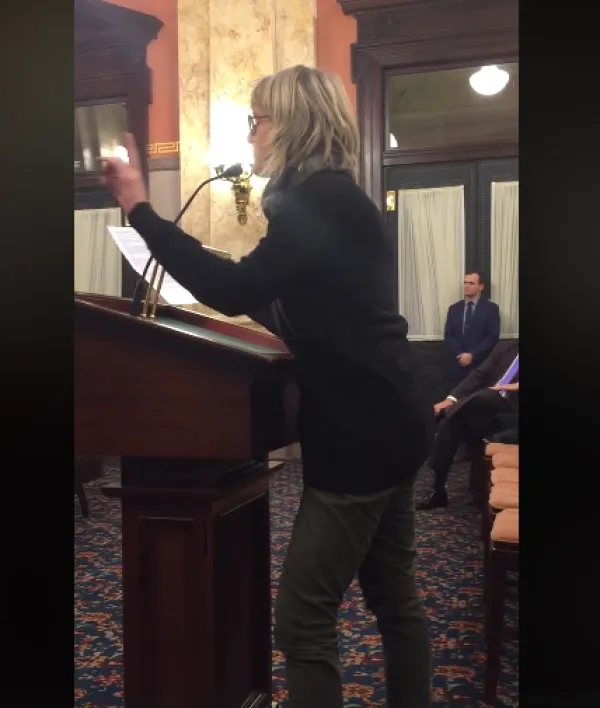Socialist feminists occupy Riffe Center, call out Governor DeWine on International Women’s Day
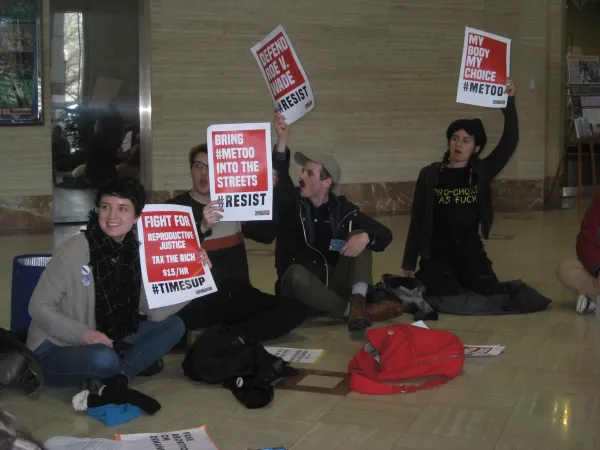
On March 8 the Cincinnati Socialist Feminists coalition and allies from Columbus decided to send Ohio Governor Mike DeWine a message for International Women’s Day. A dozen women and men attempted to access DeWine’s upper-floor office at the Columbus Riffe Center.
After being turned away, they went to the ground floor lobby and held a sit-in. “Our bodies, our choice!” they chanted. “Governor DeWine, abortion’s not a crime!”
The protesters were targeting Ohio Senate Bill 23, the so-called “heartbeat bill” which would ban abortions six weeks after conception. DeWine has pledged to sign the bill if it’s passed by the Ohio legislature.
When the lobby closed at 5 PM, State Highway Patrol officers ordered the demonstrators to leave. Depending on their level of resistance, they were escorted, dragged, or carried out of the building. There were no arrests. Outside, the protesters were joined by about 40 supporters and held a rally on the sidewalk.
Republican 'conspiracy theorists' who launched smear campaign against Robert Mueller apparently have ties to right-wing bloggers with pull at Alabama State Bar

A Republican lobbyist and a young right-wing activist with a history of dubious Tweets apparently are behind a bizarre scheme to smear Special Counsel Robert Mueller with false sexual-harassment allegations. Mueller reportedly has asked the FBI to investigate the scheme, and one report refers to its perpetrators -- Jack Burkman and Jacob Wohl -- as "pro-Trump conspiracy theorists."
Original Article " https://legalschnauzer.blogspot.com/2018/11/republican-conspiracy-theor…
September 29 Growing Roots and Rights conference in Columbus

The Other Side of the News September 21, 2018-CELDF conference
Submitted by fightback on Tue, 09/18/2018 - 6:41pm Bob and Dan interview Tish O'Dell of the Community Rights Network about the September 29 Growing Roots and Rights conference in Columbus. http://www.wcrsfm.org/audio/download/11526/TOSOTN092118-CELDFConf.mp3 https://www.facebook.com/events/262848744288531/ Details GROWING ROOTS AND RIGHTS FOR JUST COMMUNITIES CONFERENCE - REGISTRATION IS NOW OPENPLEASE JOIN US:
U.S. Judge Madeline Haikala dismisses FOIA case on Siegelman prosecution, as DOJ is allowed to produce documents so heavily redacted as to be worthless
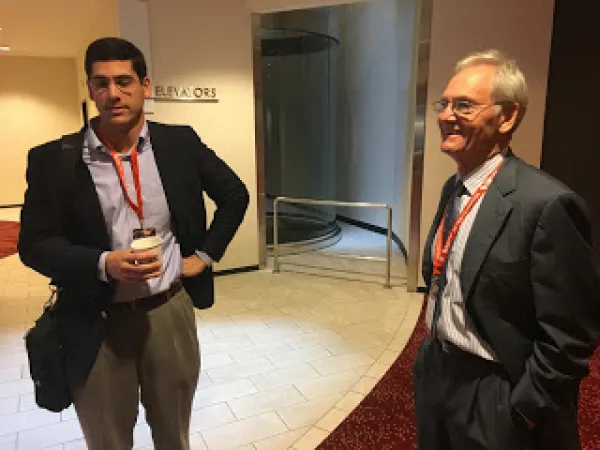
A lawsuit seeking information from the U.S. Department of Justice (DOJ) about the prosecution of former Alabama Gov. Don Siegelman has been dismissed. As often is the case with federal-court matters in Alabama, the final ruling is dubious -- in large part, because Judge Madeline Haikala received documents from the DOJ's Office of Professional Responsibility (OPR) last spring and sat on the case for roughly 10 months before making a final ruling.
Does Haikala's ruling make sense under the law.? We don't have access to the entire court file, so it's hard to make a determination on that question. But an online summary of the case docket raises troubling questions and suggests powerful conservative forces -- both in Alabama and Washington, D.C. -- are trying to keep the lid on what really happened in a case that has become known as the most notorious political prosecution in American history.
Poor People’s Campaign hits the Statehouse; no arrests yet
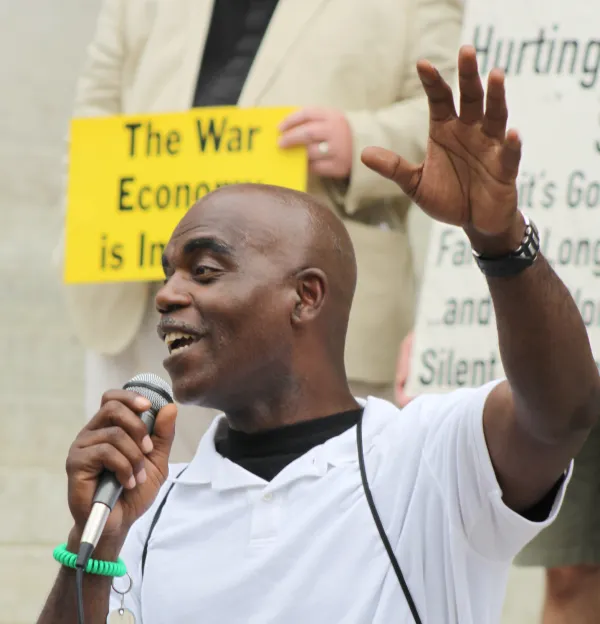
Near the end of his life, Dr. Martin Luther King came to some radical conclusions about the fundamental root of oppression. “Why are there forty million poor people in America?” he said in 1967. “When you begin to ask that question, you are raising questions about the economic system, about a broader distribution of wealth. When you ask that question, you begin to question the capitalistic economy.
“We have moved from the era of civil rights to the era of human rights, an era where we are called upon to raise certain basic questions about the whole society,” he said in a report to the Southern Christian Leadership Conference. “We have been in a reform movement…. But after Selma and the voting rights bill, we moved into a new era, which must be the era of revolution. We must recognize that we can’t solve our problem now until there is a radical redistribution of economic and political power.”
Ohio gubernatorial candidates weigh in: Corporate money in politics, green energy
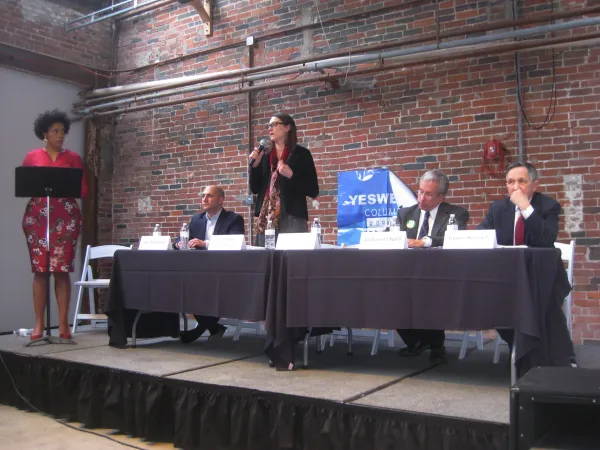
As the primary election for Ohio governor draws near, voters want to know where candidates stand on issues that affect Ohioans the most. To get some answers, Yes We Can Columbus hosted a candidates’ forum on March 12 at Strongwater Food and Spirits.
Democratic and Green gubernatorial candidates answered questions that were crowdsourced from the audience — about economic segregation, affordable housing, funding public education, police brutality, abortion rights, and gun control. Candidates proposed various solutions to these issues, but they had no major disagreements about the causes and nature of the problems.
Candidates did disagree about the influence of moneyed interests in politics. Moderator Dr. Melissa Crum asked the candidates these questions: Will you pledge to refuse contributions from corporate PACs, from the fossil fuel industry, and from the National Rifle Association? And what will you do fight the influence of money in our politics at all levels of government?
In Columbus and across Ohio, the fight for $15 is back on
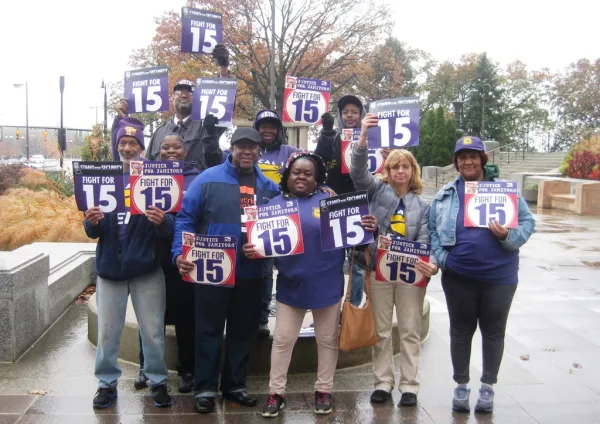
After a major setback, the struggle for a living wage in Ohio has been re-energized thanks to a ruling by a Franklin County judge. In June Common Pleas Judge Richard Frye blocked portions of Senate Bill 331, passed in December of last year by the Ohio General Assembly and signed into law by Gov. Kasich.
Part of SB 331 prohibited Ohio cities from setting a local minimum wage higher than the state minimum wage. Judge Frey tossed out this and another portion of the law, citing the one-subject rule in the Ohio Constitution, which prohibits “Christmas tree” bills: legislation with unrelated riders tacked on that benefit special interests.
In other words, the Ohio legislature is not allowed to sneak minimum wage rules into a bill that has nothing to do with labor. SB 331 was about regulating dog breeders and pet stores. This was an underhanded maneuver to pre-empt cities from setting their own minimum wage without any opportunity for public debate.
Protesters to Governor Kasich: Bring state troopers back from Standing Rock
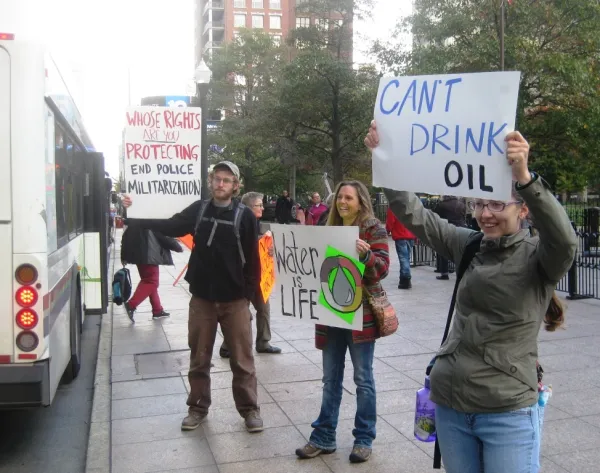
On November 4 supporters of the North Dakota Sioux from across Ohio gathered at the Statehouse to call on Governor Kasich to recall state troopers from Standing Rock. The demonstrators chanted, “Mni Wiconi!” (Lakota for “water is life”).
The Ohio State Highway Patrol sent 37 troopers to Standing Rock on October 29, ostensibly to “help law enforcement there protect property and to protect everybody’s rights.”
Opponents of the Dakota Access Pipeline understand that law enforcement has been called in to protect property rights. But they don’t believe that everyone’s rights are being protected. Police violence against protesters blocking the path of pipeline construction has been escalating, including the use of pepper spray, tear gas, stun guns, and rubber bullets.
Janitors in Columbus and Cincinnati gear up for new union contract
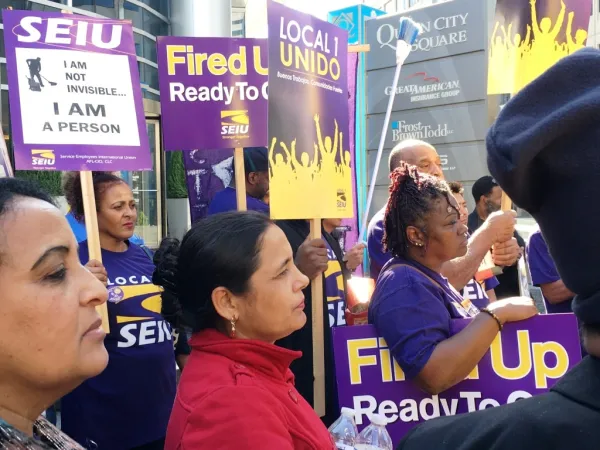
Diane Hudson wants a new union contract that will bring her family out of poverty. She works as a janitor at the Columbus Academy, a private PreK-12 school in Gahanna. Hudson supports her elderly mother and struggles every month to make ends meet. A living wage would mean “we don’t have to be under so much stress, living paycheck to paycheck,” she said.
On October 29 hundreds of janitors held a rally at the Great American Tower in Cincinnati to kick off contract negotiations. The new contracts will affect 1,800 members of Service Employees International Union (SEIU) Local 1 in central and southern Ohio, including 800 janitors who work in the Columbus area. The current Columbus contract, which expires December 31, covers janitors who clean the offices of Columbus’ largest companies, including Nationwide, Huntington, JP Morgan Chase, and AEP.

